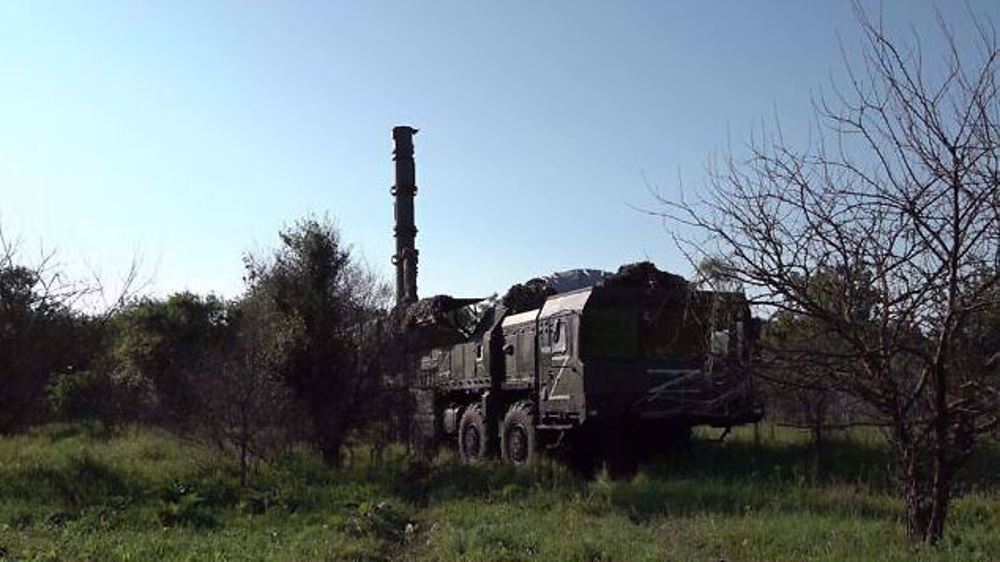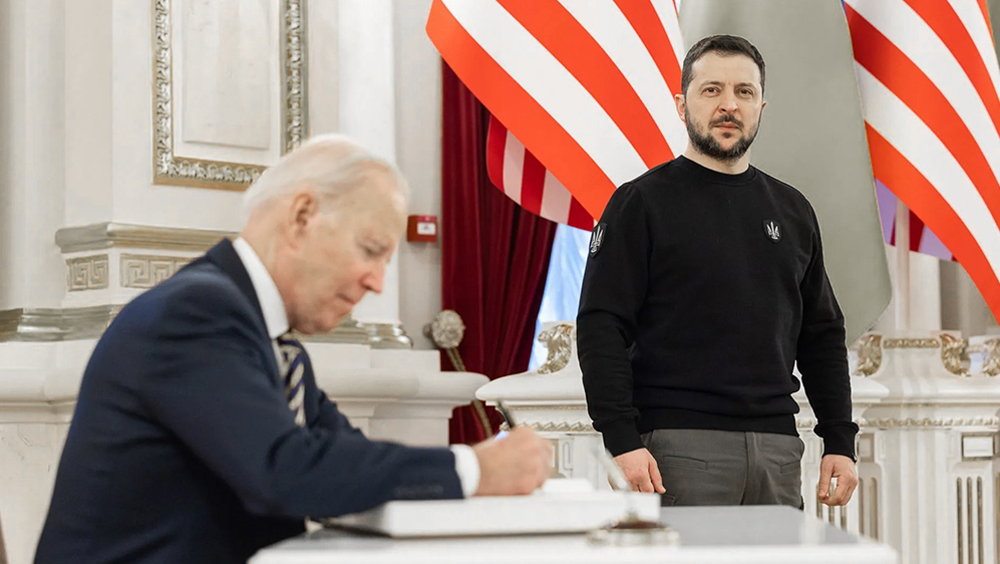US, NATO war game in Baltic mirrored by Russian maneuvers
The United States and its NATO allies have kicked off naval exercises near Russia’s western border to counter what they describe as “Russian threat”.
Thousands of US and European forces and some 50 ships on the Baltic coast near Russia participated in the exercise dubbed BALTOPS, which is part of the largest US-led war games in the past five years.
The annual maritime-focused exercise, which involves 18 allied and partner nations, was kicked off on Wednesday and will last until June 21.
This is the first time in four decades that the drill is being led by the US Navy's 2nd Fleet, which operates in the North Atlantic and became known during the Cold War for several maneuvers.
Back in 2011, the administration of Former president Barack Obama disbanded the fleet over what it described as a diminished Russian threat.
The fleet, however, was revived in 2018 "in response to Russia's growing naval activity in the Atlantic," according to the US-led NATO military alliance.

This is also the first deployment of the new US fleet in Europe.
Vice admiral and commander of the fleet, Andrew Lewis, said the fleet was “reestablished in response to a changing security environment globally.” He noted that “It was not specifically aimed at a country.”
“Russia is a Baltic nation and we respect that,” he said.
“But we, NATO, have a responsibility to maintain that international free use of the seas ... we're looking for deterrence and peaceful coexistence,” he added.
Russia conducts its own war game
Meanwhile, Russia is not only watching the US-led maneuver along its borders, but mirroring the drills along its own side of the border.
On Wednesday, the Russian navy trained for the sinking of an "enemy" submarine in the Baltic Sea.

A missile strike on "enemy" ships was also simulated in the Kaliningrad region.
This has raised concern over a potential accident between the NATO and Russia in the region.
Russia’s Deputy Foreign Minister Sergei Ryabkov warned that the lack of trust between the US and Russia as well as a lack of military-to-military contacts, have created a dangerous situation for both of them.
Russia has warned the US-led NATO alliance over its decision to beef up military presence in the strategic Baltic region, saying such a move would further increase tensions.
Israel kills 5 more paramedics in southern Lebanon: Health ministry
Iran to launch ‘new, advanced’ centrifuges in response to IAEA resolution: AEOI
Yemen fires hypersonic missile at Israeli airbase
VIDEO | New Delhi chokes under toxic smog as air quality remains at hazardous levels
VIDEO | Press TV's news headlines
VIDEO | ICC's arrest warrant for Netanyahu to worry Western politicians: Former British diplomat
Iranians protest against Israel after Netanyahu ICC warrant
Germany undecided on complying with ICC arrest warrants for Israeli war criminals













 This makes it easy to access the Press TV website
This makes it easy to access the Press TV website